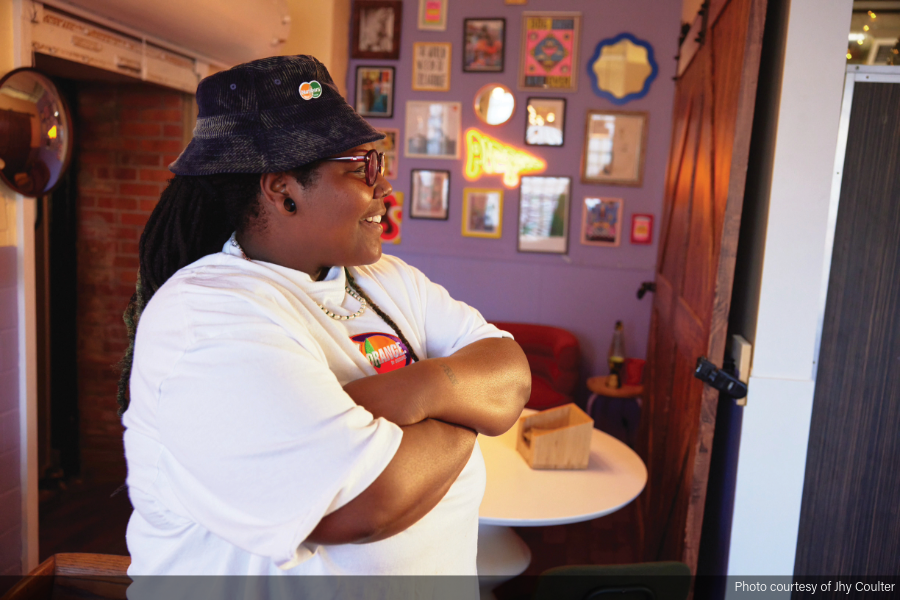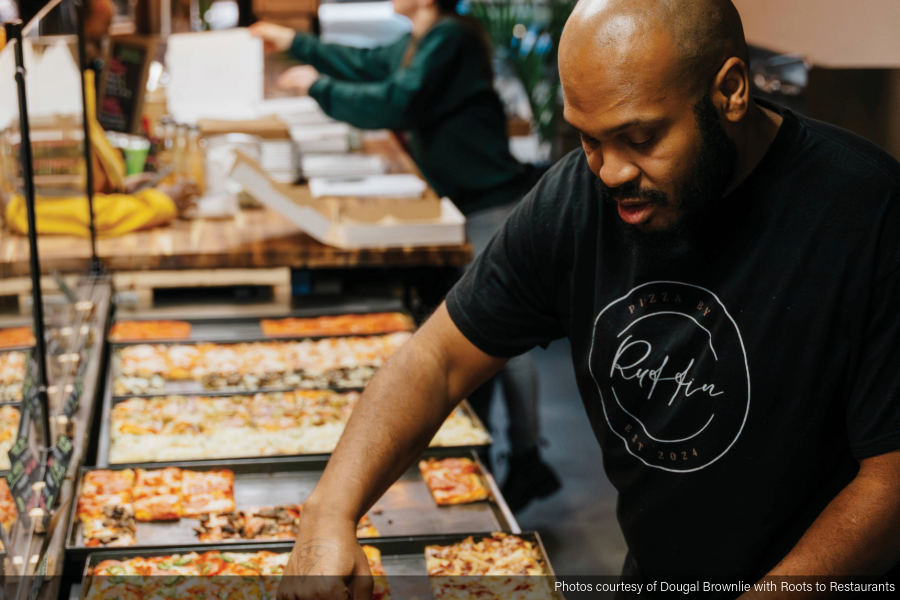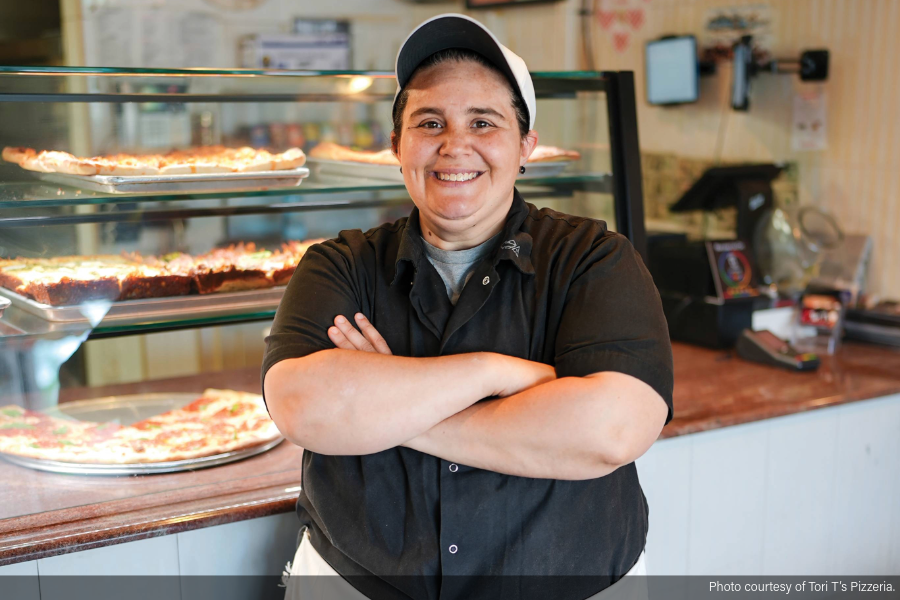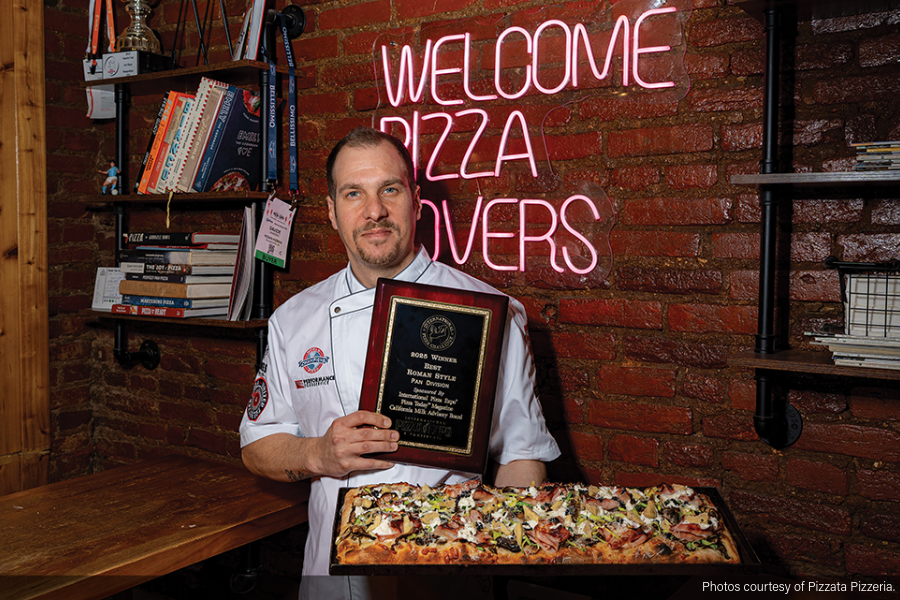Inadequate quality control can destroy restaurants
Quality control is what makes your restaurant a success. It breeds consistency and dependability, which in turn leads to repeat visits. As the owner, you alone are not equipped to be the only one in your restaurant responsible for a perfect product. This notion is a tough pill for some to swallow, but you are not enough.

Mike Bausch, owner, Andolini’s Pizzeria
One of my first restaurant jobs was working at a high-end steak house in the East Bay of San Francisco, California, as an expediter. An expediter, or “Expo” for short, is someone who looks at the kitchen tickets and organizes the flow of plates leaving the back of house. They are also the last line of defense against a plate that should never reach the table. At a restaurant like this, it was a lot of memorization and organizing because we delivered to each seat, not just the table so that we were never asking “who ordered the ribeye” when we were dropping food. I was also responsible for quality control.
At that restaurant, as an 18-year-old kid, I was surprisingly omnipotent in the kitchen. I had full autonomy as to what food passed the window and what got sent back. I was telling professional chefs and seasoned career servers, “No, this isn’t right.” I answered to only the owner and the GM. I didn’t realize it at the time, but the reason for that is when a quality control person is also a part of the people making the items, it inherently becomes a conflict of interest. When the cooks can overrule quality control, then there is NO quality control.
If you look at any great product that you buy now, I guarantee they have a quality control division that does not answer to the production division. Pay grade, seniority, rank, none of that matters. At that moment, quality control is only valid when they have the power to overrule even the owner when you’re producing pizzas on the line. I have to say to any new Expo, “When I’m on the line your job doesn’t stop; if it’s not right you have to speak up, and you’ll never get in trouble for it.” The GM at my Steak House Job said to me when I was 18, “It’s good you’re likable because to do this job right, everyone has to hate you a little bit.” He couldn’t have been more right.
So, what does this all mean to you? At your pizzeria today, can a pizza get sent back? And not only that, are pizzas getting sent back often? If it’s never happening, it’s not because your place is perfect. It’s because you and your crew are lazy and don’t want to make the pizza again when something inevitably goes wrong. And I get it. There’s the fear of food costs skyrocketing, and the bottleneck reorders and refires caused along with the crappy morale refires can create. That leads to phrases like: “It’s not too burnt” or “The pizza’s not that soggy” or “We’ll just cook it off some other way and doctor it” or “Well, that’s on them. They shouldn’t have ordered it that way.”
These are all the phrases of mediocrity. These are all phrases of a dying restaurant.
I’ve learned to fully embrace the refire and send out the original pizza (pending it had no health or allergy concerns) to the customer and say this to them; “This really isn’t up to our standards. So, we’re making you a new one and we can either box it, or we’ll bring it back out, and you’ll have two at the table. We fast-tracked your order to the front of our cook line, but we wanted you to at least have this to eat while you wait for the new pizza, which we’re making the right and correct way. Again, we sincerely apologize.”
By saying and doing that, we create a wow factor that, for the few bucks in food cost of that item, is worth one hundred times what that would take me to achieve in marketing dollars. That’s not hyperbole. I calculate that word of mouth value in the hundreds vs. the few dollars it takes me to remake a pizza. It gives the customer a story to spread organically and preserves our brand integrity to keep them and the people they talk to as a repeat customer.
Mike Bausch is the owner of Andolini’s Pizzeria in Tulsa, Oklahoma.








